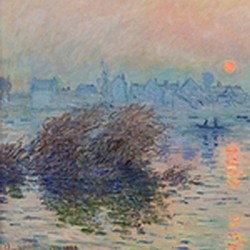
In the early afternoon on Sunday 25 I received a text from a reliable source saying: "È morta la Ludwig." The news spread soon on Twitter and was published by Austrian newspapers: mezzo-soprano Christa Ludwig had died at home the day before at ninety-three. She lived a long life, and I hope her private life was as rich as her life on the stage; her career was extraordinary, and these obituaries by Arturo Reverter in Scherzo or this other by Manuel Brug in Die Welt summarize it.
Her fans not only admired her; you could tell we were fond of her just reading the reaction regarding her death on Twitter or in WhatsApp groups, for instance. As a friend of mine tweeted, it was as if we had lost a dear distant relative; Christa Ludwig was a kind of honorary aunt. She had withdrawn from the stage in 1994 and since then she had devoted himself to teaching; she still planned to give some masterclasses in the Salzburg Festival next summer. Thanks to this activity, we had regular news from her; she was expansive and chatty, and the interviews she gave were widely celebrated and shared. The radio station France Musique recently recovered a long interview she gave in 2016, broadcast in five chapters (I do not know how long it will be available), and on this website we can read an interview she gave in 2013.
Of course, we're listening to a song sang by Christa Ludwig this week, but firstly, I want to share with you a video; in fact, there's a cult video in my circle: Christa Ludwig sings I'm easily assimilated (a kind of hymn in the same circle) from Bernstein's Candide in a 1989 recording. The piece is brilliant and funny, Ludwig nails it, June Anderson looks at her with devotion, Bernstein enjoys each note he conducts, and their hug at the end of the piece is the icing on the cake. I'm linking it just before it starts, so as you can listen to Bernstein explaining the origin of the famous sentence "Me muero, me sale una hernia" [I'm dying and growing a hernia], but you can hear the whole opera if you backwards.
And now, let's talk about Lied. When I prepared that Sunday the cover we have on the Home (remember, it's an ephemeral cover, maybe there's a new one when you read this article), a small homage to Christa Ludwig, I realized that out of six Lieder we heard sang by her so far, one was from Winterreise (she was one of the first women to record it) and the rest were by Brahms. Why? I would say the only explanation is I like her singing Brahms. Today we're listening to another composer, Richard Wagner, one of his Wesendonck-Lieder. If it hadn't been for this cycle, Wagner's contribution to the genre would have been a mere anecdote; but with these five Lieder, it became essential. Christa Ludwig recorded in 1962 the orchestral version by Felix Mottl, with Otto Klemperer conducting the Philharmonia Orchestra; from this recording, we're listening to Schmerzen. Thank you for so much beauty, Frau Ludwig!
Sonne, weinest jeden Abend
Dir die schönen Augen rot,
Wenn im Meeresspiegel badend
Dich erreicht der frühe Tod;
Doch erstehst in alter Pracht,
Glorie der düstren Welt,
Du am Morgen neu erwacht,
Wie ein stolzer Siegesheld!
Ach, wie sollte ich da klagen,
Wie, mein Herz, so schwer dich sehn,
Muß die Sonne selbst verzagen,
Muß die Sonne untergehn?
Und gebieret Tod nur Leben,
Geben Schmerzen Wonne nur:
O wie dank ich, daß gegeben
Solche Schmerzen mir Natur!
Sun, each evening you weep
Your pretty eyes red,
When, bathing in the mirror of the sea
You are seized by early death.
Yet you rise in all your splendor,
Glory of the gloomy world,
Newly awakening in the morning
Like a proud, victorious hero!
Ah, why should I then lament,
Why, my heart, are you so heavy,
If the sun itself must despair,
If the sun must set?
And if Death gives rise only to Life,
And pain gives way only to bliss,
O how thankful I am, that
Nature gives me such anguish!
(translation by Emily Ezust)




 We are cele...
We are cele... Three...
Three...









